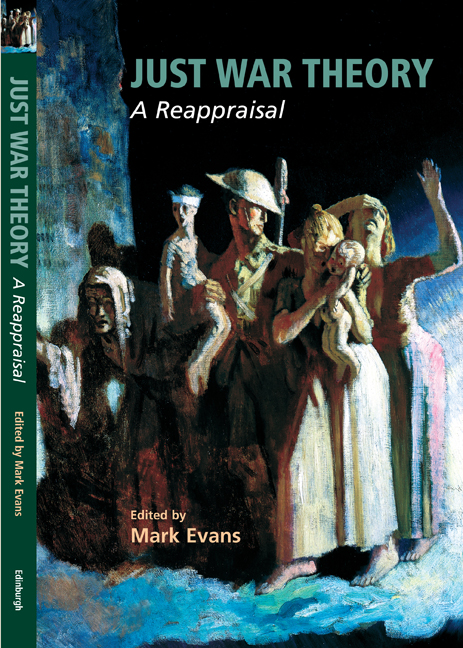Book contents
- Frontmatter
- Contents
- Notes on the Contributors
- Preface and Acknowledgements
- Introduction Moral Theory and the Idea of a Just War
- JUST CAUSE
- 1 The Justice of Preemption and Preventive War Doctrines
- 2 Punitive Intervention: Enforcing Justice or Generating Conflict?
- 3 In Humanity’s Name: Democracy and the Right to Wage War
- JUSTICE IN THE CONDUCT OF WAR
- 4 The Concept of Proportionality: Old Questions and New Ambiguities
- 5 Just War? Just Children?
- 6 Is There a Supreme Emergency Exemption?
- JUSTICE AND THE END OF WAR
- 7 Security Beyond the State: Cosmopolitanism, Peace and the Role of Just War Theory
- 8 Forgiveness and Reconciliation in Jus Post Bellum
- CONCLUSION
- In Defence of Just War Theory
- Bibliography
- Index
Preface and Acknowledgements
Published online by Cambridge University Press: 03 October 2020
- Frontmatter
- Contents
- Notes on the Contributors
- Preface and Acknowledgements
- Introduction Moral Theory and the Idea of a Just War
- JUST CAUSE
- 1 The Justice of Preemption and Preventive War Doctrines
- 2 Punitive Intervention: Enforcing Justice or Generating Conflict?
- 3 In Humanity’s Name: Democracy and the Right to Wage War
- JUSTICE IN THE CONDUCT OF WAR
- 4 The Concept of Proportionality: Old Questions and New Ambiguities
- 5 Just War? Just Children?
- 6 Is There a Supreme Emergency Exemption?
- JUSTICE AND THE END OF WAR
- 7 Security Beyond the State: Cosmopolitanism, Peace and the Role of Just War Theory
- 8 Forgiveness and Reconciliation in Jus Post Bellum
- CONCLUSION
- In Defence of Just War Theory
- Bibliography
- Index
Summary
War brings people to the very extremes of experience: confronting them with the awesomely terrible powers of destruction they can unleash, the raging and pitiless fury they can feel at fellow humans who have now become ‘enemies’, unimaginable fear at the precipice of death and uncomprehending horror at its carnage – and if they survive, maybe a bewildered joy at such a miracle, perhaps utter despair and grief at the remnants of lives wracked by injury and loss, a guilt, even, that they have survived at all … or, instead, a deadened sensibility, condemned to an existence no longer capable of relation to a world which has let loose such inhumanity.
For those of us fortunate enough never to have been subject to the rending realities of war, it can seem naïve and absurd, hubristic and disrespectful to its victims and survivors, to reflect from afar upon its nature and pronounce on its justifications and rules of conduct. ‘How dare such people presume to judge matters that lie so far beyond the realms of their experiences and their imaginations?’ Such is the complaint sometimes raised against the theorists of the just war who seem, to certain critics, to epitomise philosophers at their most unworldly, legislating from circumstances of insulated comfort for all-too-real events of which they have not the remotest grasp. According to these critics, no moral theory – which they may regard as by definition the creation of those who gaze upon harsh reality from afar – can have anything worthwhile to say on the nature of war.
Students of just war theory, which claims that war can and should be made subject to the considerations of morality – that even this phenomenon, at the far limits of what humanity may suffer, does not escape the realm of principles – should certainly approach the subject-matter with humility. But far from being justified in fearing they have no right to pronounce on the morality of war, I believe it is crucial for them – for all of us – to embrace the point that if our moral thinking cannot apply here then morality is a hollow thing indeed.
- Type
- Chapter
- Information
- Just War TheoryA Reappraisal, pp. ix - xivPublisher: Edinburgh University PressPrint publication year: 2020

